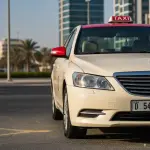Dubai’s flagship carrier, Emirates, has unveiled a state-of-the-art flight crew training centre and is hiring for multiple new pilot roles to support its rapid fleet growth and training capacity. The development marks a significant investment in aviation training infrastructure and talent, aligning with the airline’s ambitions for future fleet expansion and improved operational readiness.
Key Details of the New Training Facility & Hiring
- Facility investment & size: Emirates has invested US$135 million in the new crew training centre located near its existing training hubs in Dubai. The facility spans approximately 63,318 square feet.
- Boost in capacity: Once fully operational, the centre is expected to raise Emirates’ pilot training capacity by about 54%, translating to an estimated 130,000 training hours annually.
- Simulator bays: There are six full flight simulator bays in the centre. Two are already in operation for Airbus A350 pilot training, while simulators tailored for the Boeing 777X will be added in the coming years.
- Innovative prep tools: The facility includes a “Pilot Support Station” (PSS), a technology developed in-house that allows pilots to prepare in immersive simulated environments—configuring flight decks, building flight plans, and more—before using the actual simulators.
- 3D printing capabilities: The centre also uses 3D printing technologies to produce complex components for its training equipment, expected to bring savings of up to AED 1 million annually (approx.) in parts cost.
New Job Roles & Recruitment
- Emirates is recruiting pilots across three key programmes:
- Direct Entry Captains
- Accelerated Command
- First Officers (non-type rated)
- The hiring push comes amid a broader recruitment campaign by Emirates, which is seeking more than 17,300 professionals across 350 roles this year. These include pilots, cabin crew, engineers, and ground-handling and customer service staff.
Strategic Importance & Impact
- Fleet expansion ahead: The new centre is crucial for preparing pilots for Emirates’ upcoming fleet of Airbus A350s and Boeing 777Xs, which will require training to match technical standards and safety expectations.
- Industry leadership: Emirates describes the facility as a "game-changer" in aviation training, designed to uphold “best-in-class” standards and support Dubai’s positioning as a global aviation hub. Sheikh Ahmed bin Saeed Al Maktoum, Chairman and CEO, emphasized that every dirham of the investment (approximately AED 500 million) is being put to use to deliver value.
What It Means for Aspiring Pilots & Aviation Workers
- Opportunities in pilot training: For those aiming to become pilots, the new roles (Direct Entry Captains, Accelerated Command, First Officers) offer routes into Emirates’ growing pilot corps, with state-of-the-art training infrastructure backing them.
- Support for broader aviation staff growth: The wider recruitment campaign creates chances in numerous roles beyond flight deck positions: engineers, simulation staff, ground handling, crew training, customer service, etc.
- Enhanced training quality: The new simulator bays and prep tools mean pilots can train more efficiently and safely, with immersive preparation ahead of actual simulator time, which could lead to quicker readiness and better performance.
Challenges & Considerations
- Demand vs. supply of qualified candidates: Recruiting for high-skills roles like pilot captains and first officers is competitive, with quality training and type rating requirements. The new centre helps but the pool of experienced candidates may still be challenged.
- Simulator installation timeline: Full deployment of all simulator bays, especially those for newer aircraft types like Boeing 777X, will take time. Until then, pilot training for those types may still face constraints.
- Operational cost and maintenance: Advanced facilities (e.g., flight simulators, immersive prep stations, 3D printing) require constant maintenance, and upscaling them without compromising safety will be essential.
Looking Ahead
Emirates’ investment in training infrastructure and its aggressive hiring campaign underline the airline’s confidence in long-term growth. As demand for global air travel continues to rebound, particularly in the Middle East, such moves are key to maintaining competitiveness, ensuring safety, and meeting the operational needs of a growing fleet.
For aspiring aviation professionals, this development signals a strong moment to engage with training, certifications, and application pathways—especially as Emirates rolls out specialized roles requiring advanced qualifications.
Image source : emirategroupcareers.com










